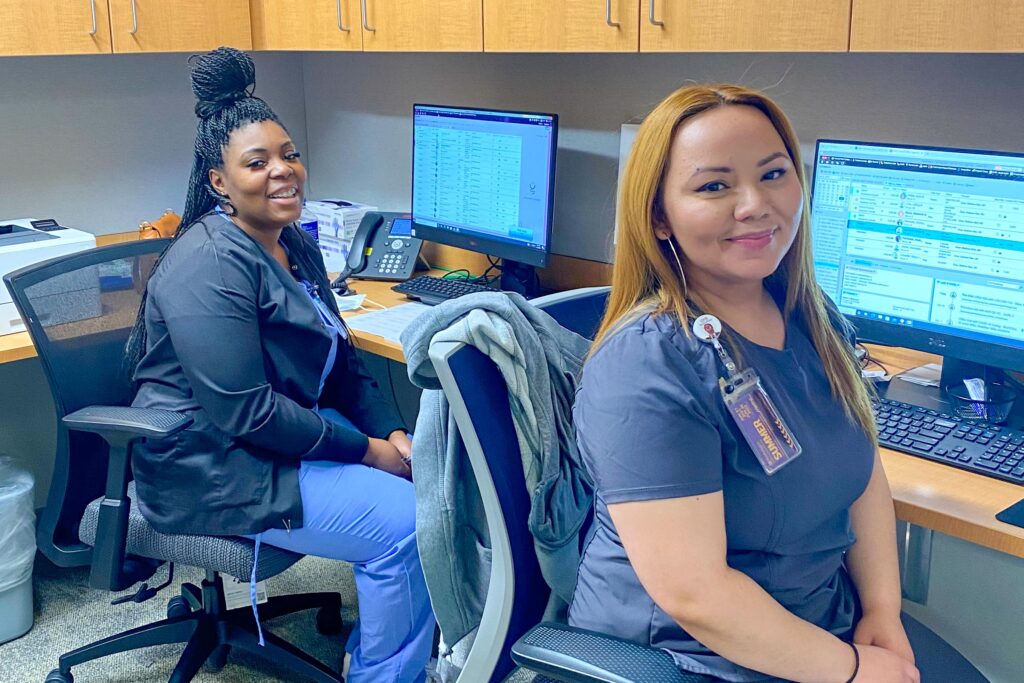Medical assistants are in high demand these days. At any given time there might be more than 100 openings for this position at Washington University School of Medicine. Working around an existing national shortage, made even worse by the closing of several national vocational training programs, the medical school’s Human Resources department launched its own training program for this staff position 18 months ago.
The Department of Otolaryngology has hired six medical assistants or trainees in just the past few months. According to Senior Director of Clinical Operations Stacy Jansen, this successful response can be attributed to a number of positive reinforcements built into the program:
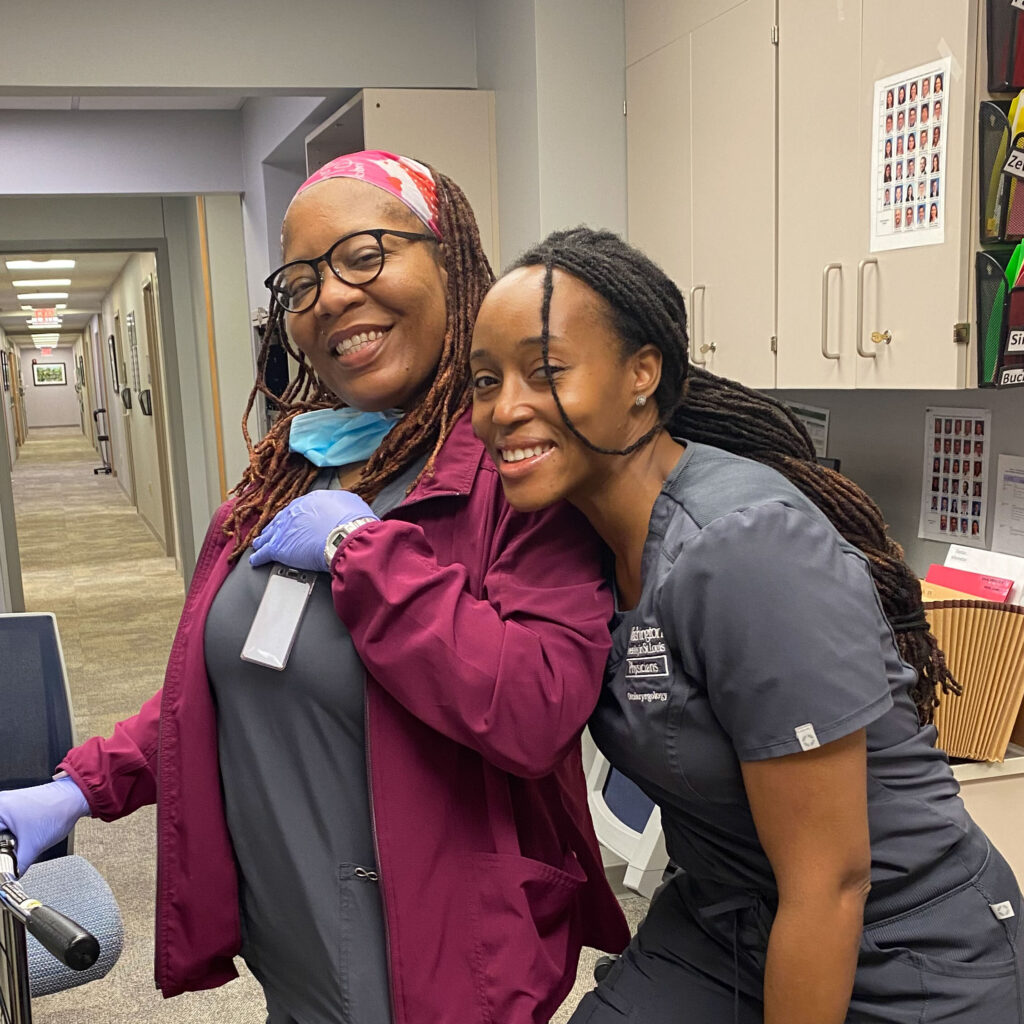
- Anyone interested can apply, and no healthcare experience is required.
- Training does not start based on calendar scheduling. As soon as a large enough cohort can be assembled, training starts.
- Training takes just 12 weeks and includes on-the-job training, minimal weekly didactics, and self-paced online coursework and exams.
- Promotions are readily obtainable and encourage personal development and career advancement.
- The training program is supported by grant funding, which most trainees qualify to receive.
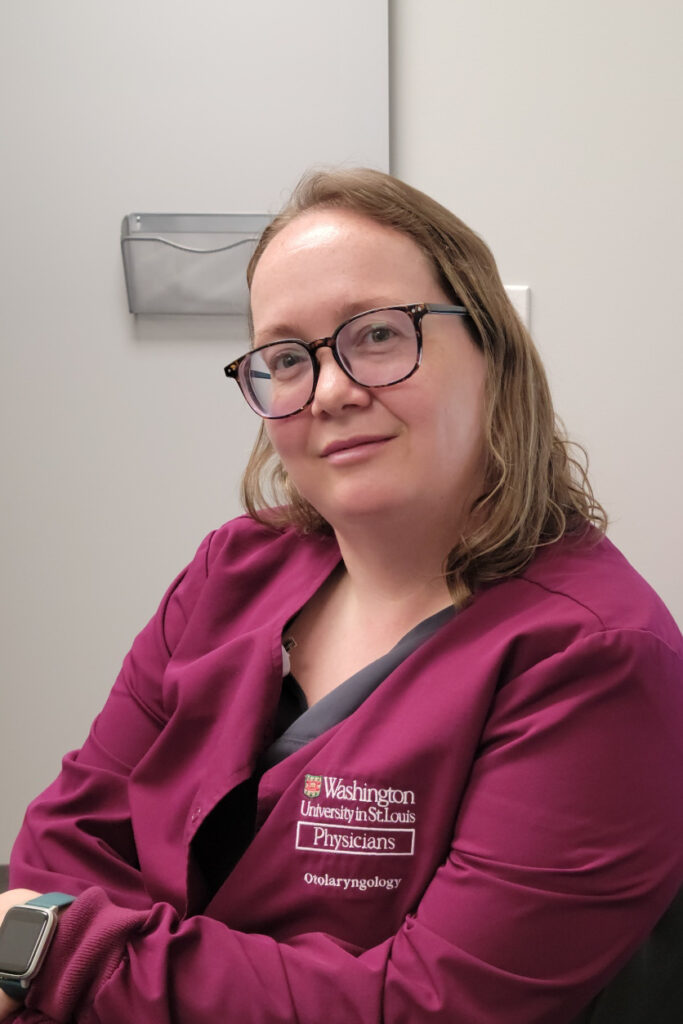
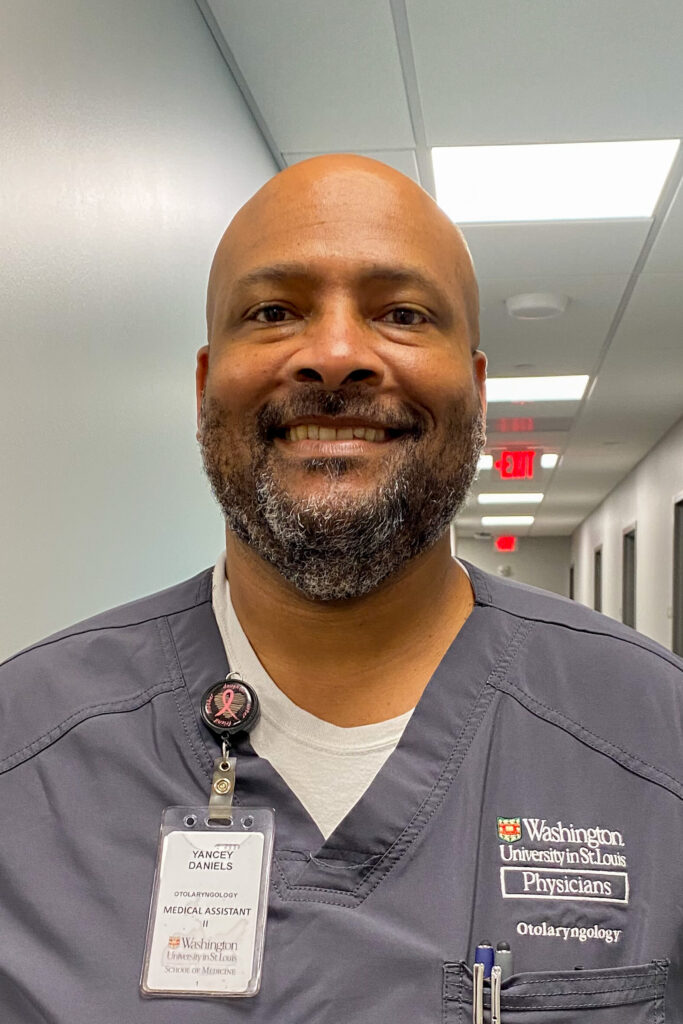
Clinical departments interview and select trainees of interest from the cohort. Following some initial training on the electronic medical records system, EPIC, onsite training can begin. Program trainers provide the weekly four hours of didactic lectures, but most training occurs hands-on in clinic spaces.
Clinical supervisors, nurses, experienced medical assistants and even faculty physicians provide on-site training. Constant communication and feedback are a key element to ensuring success. At the end of 12 weeks, trainees can sit for their certification exam. If they pass, they are promoted to MA I [Medical Assistant 1] and receive a small raise. Another promotion to MA II is only 12-18 months away if expectations are met. Those that excel may be promoted to MA III when they are ready to independently coordinate ambulatory clinics for one or two of our providers.
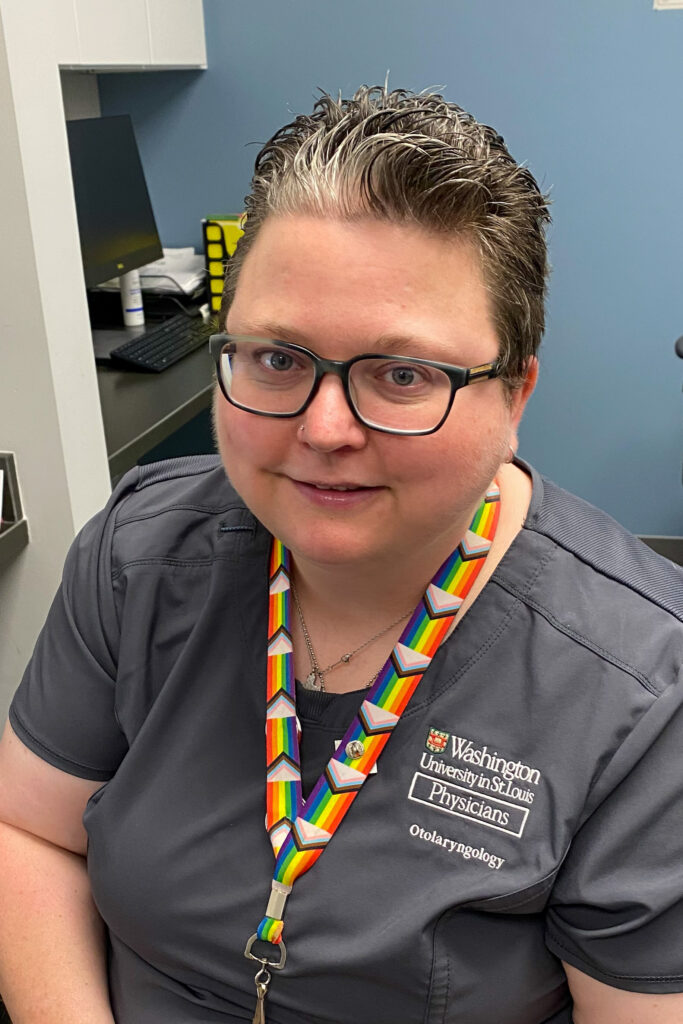
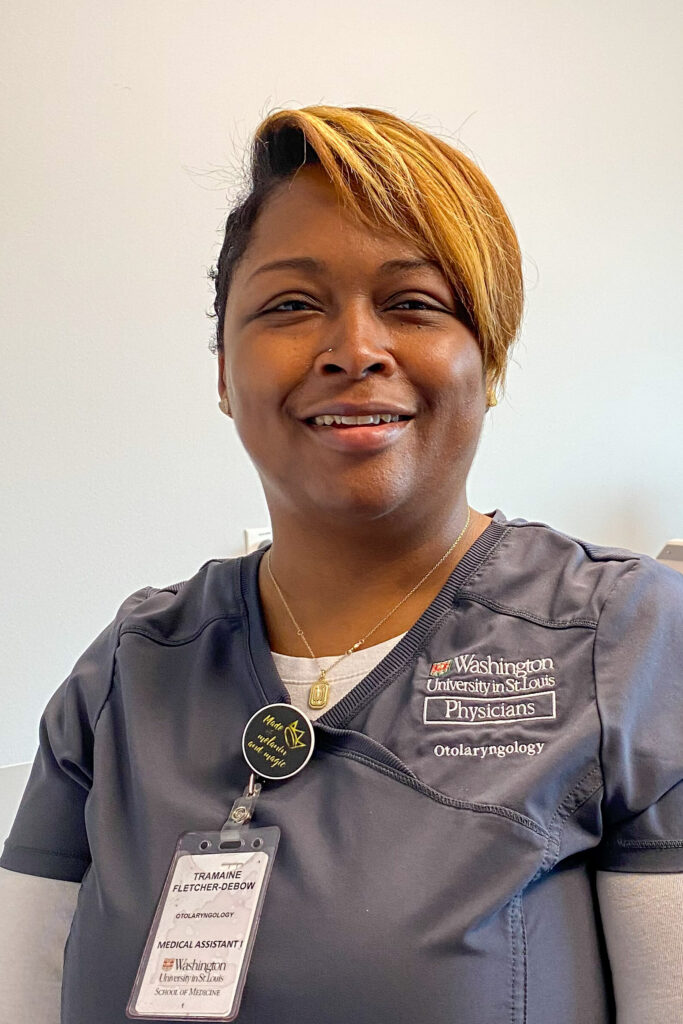
Currently the department has a total of 12 certified medical assistants at various ranks and four new trainees. Some move on to more advanced training as nurses and some have been promoted to clinic supervisor positions.
“Not only can they cover nearly any attending clinic, they generously and graciously float anywhere they are assigned,” said Jansen. “We are very proud of all of our medical assistants.”
Otolaryngology Medical Assistants
- Paris Jones, MA I
- Marlana Seddens, MA I
- Yancey Daniels, MA II
- Chantille Fierro, MA II
- Tramaine Fletcher-Debow, MA II
- MJ Reynolds, MA II
- Kara Bowman, MA III
- Diana Machado, MA III
- Morgan Stewart, MA III
- Jianrong Yang, MA III
- Kaylin Lyles, Trainee
- Nimo Abdi, Trainee
- Manda Jackson, Trainee
